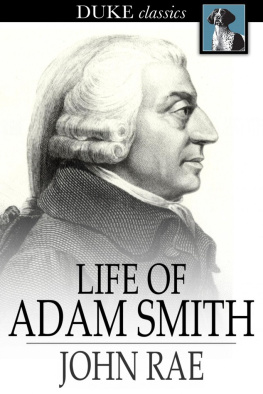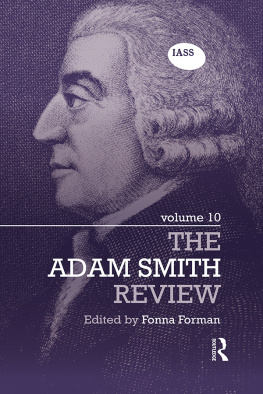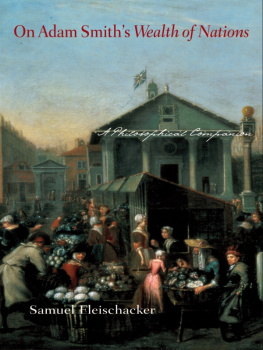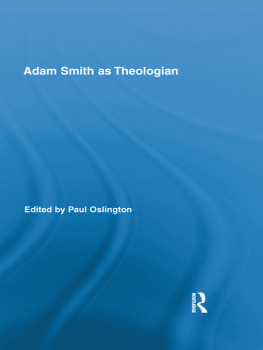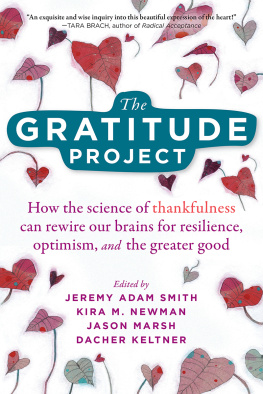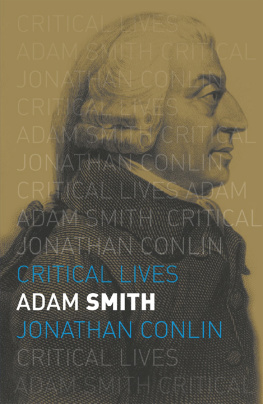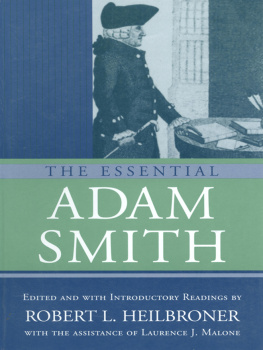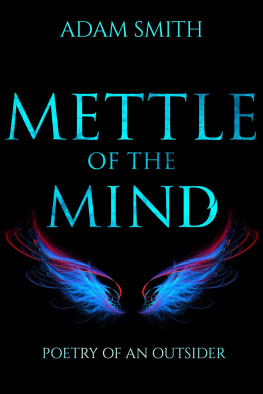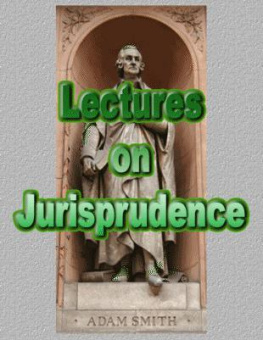John Rae - Life of Adam Smith
Here you can read online John Rae - Life of Adam Smith full text of the book (entire story) in english for free. Download pdf and epub, get meaning, cover and reviews about this ebook. publisher: Duke Classics, genre: Detective and thriller. Description of the work, (preface) as well as reviews are available. Best literature library LitArk.com created for fans of good reading and offers a wide selection of genres:
Romance novel
Science fiction
Adventure
Detective
Science
History
Home and family
Prose
Art
Politics
Computer
Non-fiction
Religion
Business
Children
Humor
Choose a favorite category and find really read worthwhile books. Enjoy immersion in the world of imagination, feel the emotions of the characters or learn something new for yourself, make an fascinating discovery.
- Book:Life of Adam Smith
- Author:
- Publisher:Duke Classics
- Genre:
- Rating:4 / 5
- Favourites:Add to favourites
- Your mark:
- 80
- 1
- 2
- 3
- 4
- 5
Life of Adam Smith: summary, description and annotation
We offer to read an annotation, description, summary or preface (depends on what the author of the book "Life of Adam Smith" wrote himself). If you haven't found the necessary information about the book — write in the comments, we will try to find it.
Life of Adam Smith — read online for free the complete book (whole text) full work
Below is the text of the book, divided by pages. System saving the place of the last page read, allows you to conveniently read the book "Life of Adam Smith" online for free, without having to search again every time where you left off. Put a bookmark, and you can go to the page where you finished reading at any time.
Font size:
Interval:
Bookmark:

First published in 1895
ISBN 978-1-62012-437-6
Duke Classics
2012 Duke Classics and its licensors. All rights reserved.
While every effort has been used to ensure the accuracy and reliability of the information contained in this edition, Duke Classics does not assume liability or responsibility for any errors or omissions in this book. Duke Classics does not accept responsibility for loss suffered as a result of reliance upon the accuracy or currency of information contained in this book.
The fullest account we possess of the life of Adam Smith is still thememoir which Dugald Stewart read to the Royal Society of Edinburgh ontwo evenings of the winter of 1793, and which he subsequentlypublished as a separate work, with many additional illustrative notes,in 1810. Later biographers have made few, if any, fresh contributionsto the subject. But in the century that has elapsed since Stewartwrote, many particulars about Smith and a number of his letters haveincidentally and by very scattered channels found their way intoprint. It will be allowed to be generally desirable, in view of thecontinued if not even increasing importance of Smith, to obtain ascomplete a view of his career and work as it is still in our power torecover; and it appeared not unlikely that some useful contribution tothis end might result if all those particulars and letters to which Ihave alluded were collected together, and if they were supplemented bysuch unpublished letters and information as it still remained possibleto procure. In this last part of my task I have been greatly assistedby the Senatus of the University of Glasgow, who have most kindlysupplied me with an extract of every passage in the College recordsbearing on Smith; by the Council of the Royal Society of Edinburgh,who have granted me every facility for using the HumeCorrespondence, which is in their custody; and by the Senatus of theUniversity of Edinburgh for a similar courtesy with regard to theCarlyle Correspondence and the David Laing MSS. in their library. Iam also deeply indebted, for the use of unpublished letters or for thesupply of special information, to the Duke of Buccleuch, the Marquisof Lansdowne, Professor R.O. Cunningham of Queen's College, Belfast,Mr. Alfred Morrison of Fonthill, Mr. F. Barker of Brook Green, and Mr.W. Skinner, W.S., late Town Clerk of Edinburgh.
1723-1737
Adam Smith was born at Kirkcaldy, in the county of Fife, Scotland, onthe 5th of June 1723. He was the son of Adam Smith, Writer to theSignet, Judge Advocate for Scotland and Comptroller of the Customs inthe Kirkcaldy district, by Margaret, daughter of John Douglas ofStrathendry, a considerable landed proprietor in the same county.
Of his father little is known. He was a native of Aberdeen, and hispeople must have been in a position to make interest in influentialquarters, for we find him immediately after his admission to theSociety of Writers to the Signet in 1707, appointed to thenewly-established office of Judge Advocate for Scotland, and in thefollowing year to the post of Private Secretary to the ScotchMinister, the Earl of Loudon. When he lost this post in consequence ofLord Loudon's retirement from office in 1713, he was provided for withthe Comptrollership of Customs at Kirkcaldy, which he continued tohold, along with the Judge Advocateship, till his premature death in1723. The Earl of Loudon having been a zealous Whig and Presbyterian,it is perhaps legitimate to infer that his secretary must have beenthe same, and from the public appointments he held we may furthergather that he was a man of parts. The office of Judge Advocate forScotland, which was founded at the Union, and which he was the firstto fill, was a position of considerable responsibility, and wasoccupied after him by men, some of them of great distinction.Alexander Fraser Tytler, the historian, for example, was JudgeAdvocate till he went to the bench as Lord Woodhouselee. The JudgeAdvocate was clerk and legal adviser to the Courts Martial, but asmilitary trials were not frequent in Scotland, the duties of thisoffice took up but a minor share of the elder Smith's time. His chiefbusiness, at least for the last ten years of his life, was his work inthe Custom-house, for though he was bred a Writer to the Signetthatis, a solicitor privileged to practise before the Supreme Courthenever seems to have actually practised that profession. A localcollectorship or controllership of the Customs was in itself a moreimportant administrative office at that period, when duties werelevied on twelve hundred articles, than it is now, when duties arelevied on twelve only, and it was much sought after for the younger,or even the elder, sons of the gentry. The very place held by Smith'sfather at Kirkcaldy was held for many years after his day by a Scotchbaronet, Sir Michael Balfour. The salary was not high. Adam Smithbegan in 1713 with 30 a year, and had only 40 when he died in 1723,but then the perquisites of those offices in the Customs were usuallytwice or thrice the salary, as we know from the Wealth of Nationsitself (Book V. chap. ii.). Smith had a cousin, a third Adam Smith,who was in 1754 Collector of Customs at Alloa with a salary of 60 ayear, and who writes his cousin, in connection with a negotiation thelatter was conducting on behalf of a friend for the purchase of theoffice, that the place was worth 200 a year, and that he would notsell it for less than ten years' purchase.
Smith's father died in the spring of 1723, a few months before hisfamous son was born. Some doubt has been cast upon this fact by anannouncement quoted by President M'Cosh, in his ScottishPhilosophy, from the Scots Magazine of 1740, of the promotion of AdamSmith, Comptroller of the Customs, Kirkcaldy, to be Inspector-Generalof the Outports. But conclusive evidence exists of the date of thedeath of Smith's father in a receipt for his funeral expenses, whichis in the possession of Professor Cunningham, and which, as a curiousillustration of the habits of the time, I subjoin in a note below.The promotion of 1740 is the promotion not of Smith's father but ofhis cousin, whom I have just had occasion to mention, and who appearsfrom Chamberlayne's Notitia Angli to have been Comptroller of theCustoms at Kirkcaldy from about 1734 till somewhere before 1741. Inthe Notitia Angli for 1741 the name of Adam Smith ceases to appearas Comptroller in Kirkcaldy, and appears for the first time asInspector-General of the Outports, exactly in accordance with theintimation quoted by Dr. M'Cosh. It is curious that Smith, who was todo so much to sweep away the whole system of the Customs, should havebeen so closely connected with that branch of administration. Hisfather, his only known relation on his father's side, and himself,were all officials in the Scotch Customs.
On the mother's side his kindred were much connected with the army.His uncle, Robert Douglas of Strathendry, and three of his uncle'ssons were military officers, and so was his cousin, Captain Skene, thelaird of the neighbouring estate of Pitlour. Colonel Patrick Ross, adistinguished officer of the times, was also a relation, but on whichside I do not know. His mother herself was from first to last theheart of Smith's life. He being an only child, and she an only parent,they had been all in all to one another during his infancy andboyhood, and after he was full of years and honours her presence wasthe same shelter to him as it was when a boy. His friends often spokeof the beautiful affection and worship with which he cherished her.One who knew him well for the last thirty years of his life, and wasvery probably at one time a boarder in his house, the clever andbustling Earl of Buchan, elder brother of Lord Chancellor Erskine,says the principal avenue to Smith's heart always was by his mother.He was a delicate child, and afflicted even in childhood with thosefits of absence and that habit of speaking to himself which he carriedall through life. Of his infancy only one incident has come down tous. In his fourth year, while on a visit to his grandfather's house atStrathendry on the banks of the Leven, the child was stolen by apassing band of gipsies, and for a time could not be found. Butpresently a gentleman arrived who had met a gipsy woman a few milesdown the road carrying a child that was crying piteously. Scouts wereimmediately despatched in the direction indicated, and they came uponthe woman in Leslie wood. As soon as she saw them she threw her burdendown and escaped, and the child was brought back to his mother. Hewould have made, I fear, a poor gipsy. As he grew up in boyhood hishealth became stronger, and he was in due time sent to the BurghSchool of Kirkcaldy.
Font size:
Interval:
Bookmark:
Similar books «Life of Adam Smith»
Look at similar books to Life of Adam Smith. We have selected literature similar in name and meaning in the hope of providing readers with more options to find new, interesting, not yet read works.
Discussion, reviews of the book Life of Adam Smith and just readers' own opinions. Leave your comments, write what you think about the work, its meaning or the main characters. Specify what exactly you liked and what you didn't like, and why you think so.

